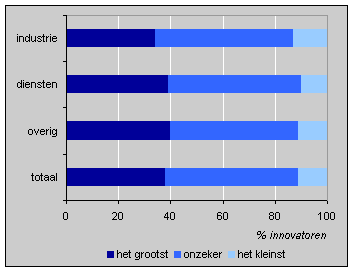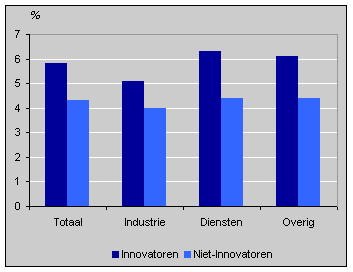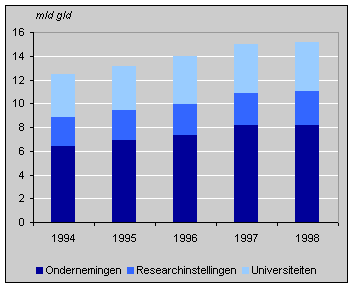'Soft' innovation just as important as 'hard' innovation

Forty per cent of companies undertook innovative activities in the period 1996-1998, up from 37% in the years 1994-1996. In this respect, an innovative activity is defined as a technological activity with the purpose of realising new products or new production processes.
Six out of ten companies are thus apparently not innovative in the technological sense of the word. Just over 80% of these companies say they do not need such innovations. However, nearly half of them do undertake innovative activities is a non-technological sense, for example in the fields of strategy, marketing, organisation and management.
The two forms of innovation are often implemented together. For example, nearly four out of five companies with technological innovative activities also undertake activities in a non-technological area. It even seems that hard (technological) innovation is more successful when it is implemented in combination with soft (non-technological) innovation. According to innovators who are in a position to report on this, non-technological innovation contributes to a stronger competitiveness.
Effect of non-technological innovation on competitiveness

Does innovation pay?
Innovative companies realise higher turnover growth rates than non-innovative companies. However, it often takes a few years before the effects of innovation become visible: research results need time to evolve into new products or production processes; teething troubles take time to solve, and it is usually a number of years before the new products prove their worth on the market.
Turnover growth 1994-1996

R&D expenditure stagnates in 1998
From 1994 to 1997 R&D expenditure rose by an average 8% annually. Through the years the private sector has accounted for most of this expenditure, and the increase has been accompanied by increasing innovating activities in this sector. Therefore in time higher R&D expenditure results in more innovation.
In 1998 Dutch expenditure on R&D was only 0.9% more than in 1997, totalling nearly seven billion euros.
R&D expenditure

Luuk Klomp and André MeurinkLuuk Klomp and André Meurink